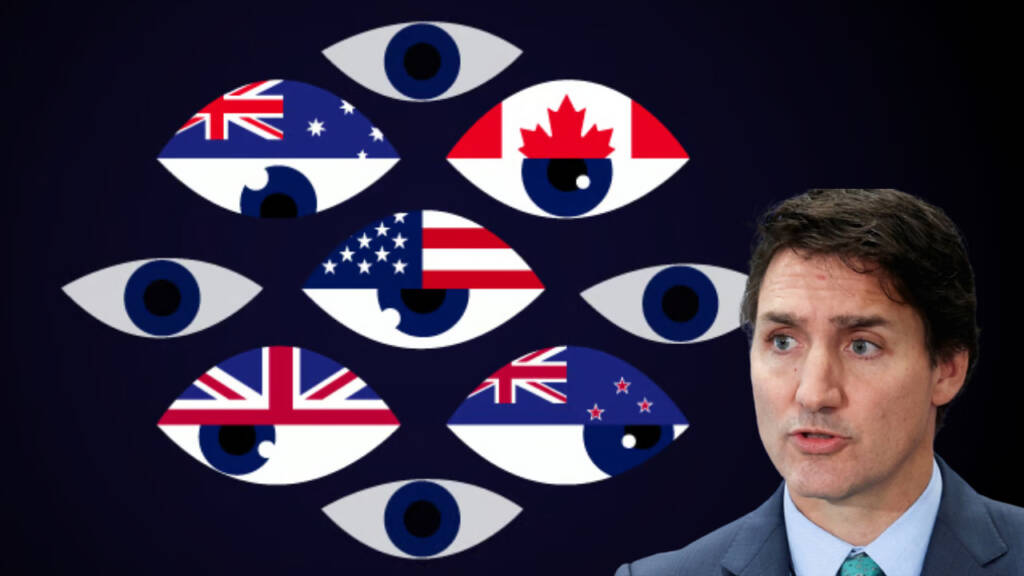Five Eyes alliance and Trudeau: Justin Trudeau’s recent participation in the G20 Summit in India unfolded as a narrative of unmet expectations and diplomatic setbacks. The notable absence of a warm reception from Indian PM Narendra Modi highlighted Trudeau’s diminished global standing. In a summit characterized by international partnerships, trade agreements, and climate commitments, Trudeau’s contributions appeared feeble. His misguided attempt to isolate India on the global stage found no support, even from his Five Eyes alliance partners.
Trudeau’s G20 sojourn ignited the feud with Modi
Justin Trudeau’s recent visit to India was met with widespread condemnation on the global stage. His agenda, which accused India of interference in Canadian affairs without formal confirmation, raised eyebrows.
Trudeau’s attempts to draw attention to the Khalistan issue during the G20 Summit were met with indifference from foreign officials, dashing his expectations. His controversial remarks alleging Indian government involvement in Hardeep Singh Nijjar’s killing triggered a flurry of responses, with India dismissing them as “absurd and motivated.”
Shockingly, Trudeau’s plea for support from foreign allies fell on deaf ears, leaving him isolated and without attention from other world leaders.
Trudeau vs the Global leaders
Trudeau’s efforts to rally his “closest allies” against India in the wake of the Hardeep Singh Nijjar case have ended in embarrassment. Despite his attempts to garner international condemnation, he received lukewarm responses from leaders of countries he hoped would support his diplomatic campaign.
Read More: Canada is officially Khalistan, India has shown it to the World
Trudeau briefed leaders from the Five Eyes alliance, including the UK, France, and the US, but encountered a chilly reception. While Australian Prime Minister Anthony Albanese didn’t express his opinion on the incident, the British government’s priority is securing a trade deal with India, according to a spokesperson.
US officials expressed concern about the allegations but emphasized their close contact with Canadian counterparts. Trudeau’s bid to mobilize international support against India appears to have fallen flat.
‘Chill out’: Albanese deflects question
During a recent press conference in Canberra, Australian PM Anthony Albanese refrained from expressing his opinion on the incident involving the Khalistan terrorist. When asked by a reporter whether he personally raised concerns with Indian Prime Minister Narendra Modi during the G20 meeting in India regarding the death of the Sikh activist, Albanese’s response seemed non-committal.
Albanese, in a somewhat dismissive tone, replied to the reporter’s question by suggesting that they should “chill out.” He mentioned the warm reception Prime Minister Modi received from the Indian diaspora in Australia during his previous visit.
Albanese highlighted that he had welcomed Prime Minister Modi to Australia as he does with other guests and recalled attending the G20 hosted by India, emphasizing its significance in signaling the rise of countries in the region.
Although the Australian Prime Minister chose not to comment extensively on the issue, Foreign Minister Penny Wong conveyed that Australia was “deeply concerned” about allegations of a potential link between the Indian government and the killing of the 45-year-old terrorist.
Albanese clearly avoided making any public statement and said that the country is taking the matter seriously.
Sunak’s spokesperson: UK’s only focus on India trade deal
The British Prime Minister’s spokesperson has emphasized that the recent killing won’t impact the ongoing trade negotiations between the UK and India. The spokesperson made it clear that the trade negotiations would proceed as planned and that the Canadian authorities would conduct their investigations independently.
The spokesperson stated that when concerns arise about countries involved in trade negotiations, those concerns will be addressed directly with the concerned government. However, in the case of negotiations with India, the focus remains on the trade deal itself, without conflating it with unrelated issues. This stance reflects the British government’s commitment to advancing trade discussions while handling concerns through appropriate diplomatic channels.
Read More: The Rise of Khalistan: A Threat to Canada’s White Population
The assurance that the trade talks will continue without disruption underscores the separation of trade negotiations from other diplomatic matters, maintaining a pragmatic approach to economic relations between the UK and India.
US is ‘quite concerned’ about allegations
Even the United States, a close neighbor and traditional ally, has distanced itself from Trudeau’s actions. A former Pentagon official candidly remarked that if Americans had to make a choice between supporting Trudeau or India, they would unequivocally side with India.
An ex-Pentagon official boldly declared that if Americans had to choose between backing Trudeau or India, they’d opt for the elephant over the ant. Yes, you heard it right – in this analogy, India is the elephant, and Trudeau, well, he’s the ant, who is not even that wily to give the elephant a run for his money!
Trudeau’s aspirations for global moral leadership have seemingly led him astray, exposing Canada to potential international ostracism. His diplomatic misadventures have not only failed to gain traction but have also strained Canada’s relations with influential nations. As a result, Trudeau now faces the risk of becoming a ‘global pariah.’
Watch More:
https://youtu.be/XcUifVRywOQ?si=j94PqRAr4FUXh05n
